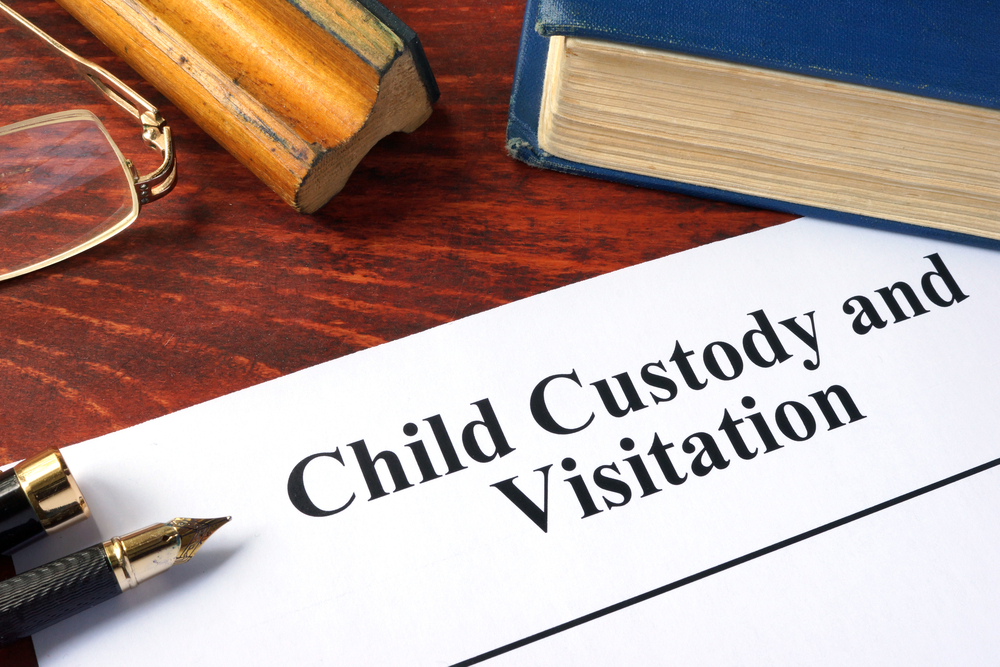
Child Visitation Rights in NY: Can a Child Refuse Visitation?
Navigating child visitation rights in New York can be an emotional and complex process for families. While the law prioritizes the best interests of the child, questions often arise about a child’s say in visitation arrangements. Parents and guardians may wonder if a child can legally refuse visitation and, if so, at what age their preferences are considered.
Understanding the balance between a child’s wishes and legal obligations is crucial for resolving these situations. New York’s family courts aim to ensure that visitation agreements promote healthy relationships while addressing the unique dynamics of each case.
Legal Rights of Parents and Children in Visitation Cases
New York law recognizes both the parents’ and child’s rights in visitation cases. Parents hold a legal right to maintain a relationship with their child unless evidence indicates that such visitation would harm the child. Courts typically uphold this right to ensure the child’s well-being and foster parental bonds.
Children’s rights are considered through the “best interests of the child” standard. Judicial decisions evaluate multiple factors, including the child’s needs, parental history, and familial circumstances. A child’s preferences may influence visitation rulings when the child demonstrates sufficient maturity, though such preferences are not absolute.
The law prioritizes balanced resolutions. If conflicts arise, mediation or court-ordered adjustments may address disputes while preserving the child’s welfare. Firms familiar with state-specific cases, such as the Levoritz Law Firm, often assist in determining practical and equitable outcomes for all parties involved. This legal guidance aligns with the overarching framework supporting a healthy parent-child relationship.
When a Child’s Preference Influences Court Decisions
In New York, courts evaluate a child’s preference as part of the “best interests of the child” standard. A child’s feelings about visitation may gain weight if the child shows sufficient maturity, often assessed by their ability to articulate reasons for their preferences. However, these preferences don’t override other pivotal factors like parental fitness, emotional stability, or proven history of abuse.
Judges may conduct in-camera interviews with children to explore their desires in a non-intimidating setting, ensuring unbiased input. In certain cases, the court may consider appointing a law guardian or attorney for the child to present their preferences in legal proceedings.
The courts balance the child’s preference with legal obligations for visitation unless circumstances demonstrate harm to the child’s wellbeing. Addressing the question, “ Can a Child Refuse Visitation in NY?” depends largely on the specific facts of each case, but their refusal alone is not definitive without additional evidence supporting their claims.
Addressing Disputes Over Refusal of Visitation
Legal remedies offer solutions when disputes arise from a child’s refusal of visitation in New York. Courts assess whether the refusal stems from valid concerns, such as abuse or neglect, or from external influences that hinder the parent-child relationship. Child visitation orders remain enforceable unless modified or terminated by the court based on compelling evidence.
Parents must comply with visitation orders, as failing to facilitate court-ordered visitation can result in contempt proceedings. If a child resists visitation and lacks a justifiable reason, the court evaluates whether parental intervention is required to address underlying issues. Conversely, if evidence shows that visitation poses harm, legal modifications to the order can be pursued.
Judges often utilize tools like appointing guardians ad litem or mental health professionals to investigate disputes. These specialists report on the child’s circumstances and provide recommendations for resolution. The child’s preference may be considered but doesn’t outweigh the court’s responsibility to ensure adherence to the child’s best interests. Family law practitioners, such as the Levoritz Law Firm, frequently assist in navigating complex cases involving child visitation refusals in New York.
The Role of Mediation in Resolving Visitation Conflicts
Mediation provides a structured approach for resolving conflicts in child visitation cases. It encourages open communication between parents, aiming to address disagreements without escalating matters to court. Mediators, as neutral third parties, help identify underlying issues and facilitate compromises that align with the child’s best interests.
Mediation often benefits cases where a child refuses visitation, provided concerns are rooted in misunderstandings or strained relationships rather than abuse or neglect. If parties navigate mediation with good faith, it can lead to customized agreements that adapt to the child’s changing preferences and maturity over time.
In New York, courts may recommend or mandate mediation when visitation disputes arise. This method ensures voluntary participation, although agreements reached through mediation require court approval to become legally binding. Mediation helps reduce costs, emotional stress, and time associated with prolonged litigation, promoting healthier co-parenting dynamics.
Experienced legal professionals, such as those at the Levoritz Law Firm, can guide families through mediation processes. Their expertise ensures that parents advocate effectively while maintaining a focus on the child’s welfare, addressing whether concerns—like a child’s refusal to comply—stem from actionable issues. Mediation complements judicial oversight, offering a collaborative path toward resolution.
Ensuring Compliance with Court-Ordered Visitation Schedules
Navigating child visitation rights in New York requires a delicate balance between legal obligations and the emotional needs of everyone involved. Courts carefully evaluate each case to prioritize the child’s best interests while ensuring parents fulfill their responsibilities.
When disputes arise, mediation and legal guidance can provide effective solutions, fostering healthier family dynamics. Parents and guardians must remain committed to compliance with visitation orders and work collaboratively to address any challenges, always keeping the child’s welfare at the forefront.
Experienced legal professionals can offer invaluable support throughout this process, helping families resolve conflicts and create arrangements that promote stability and positive relationships.
Comments are Closed